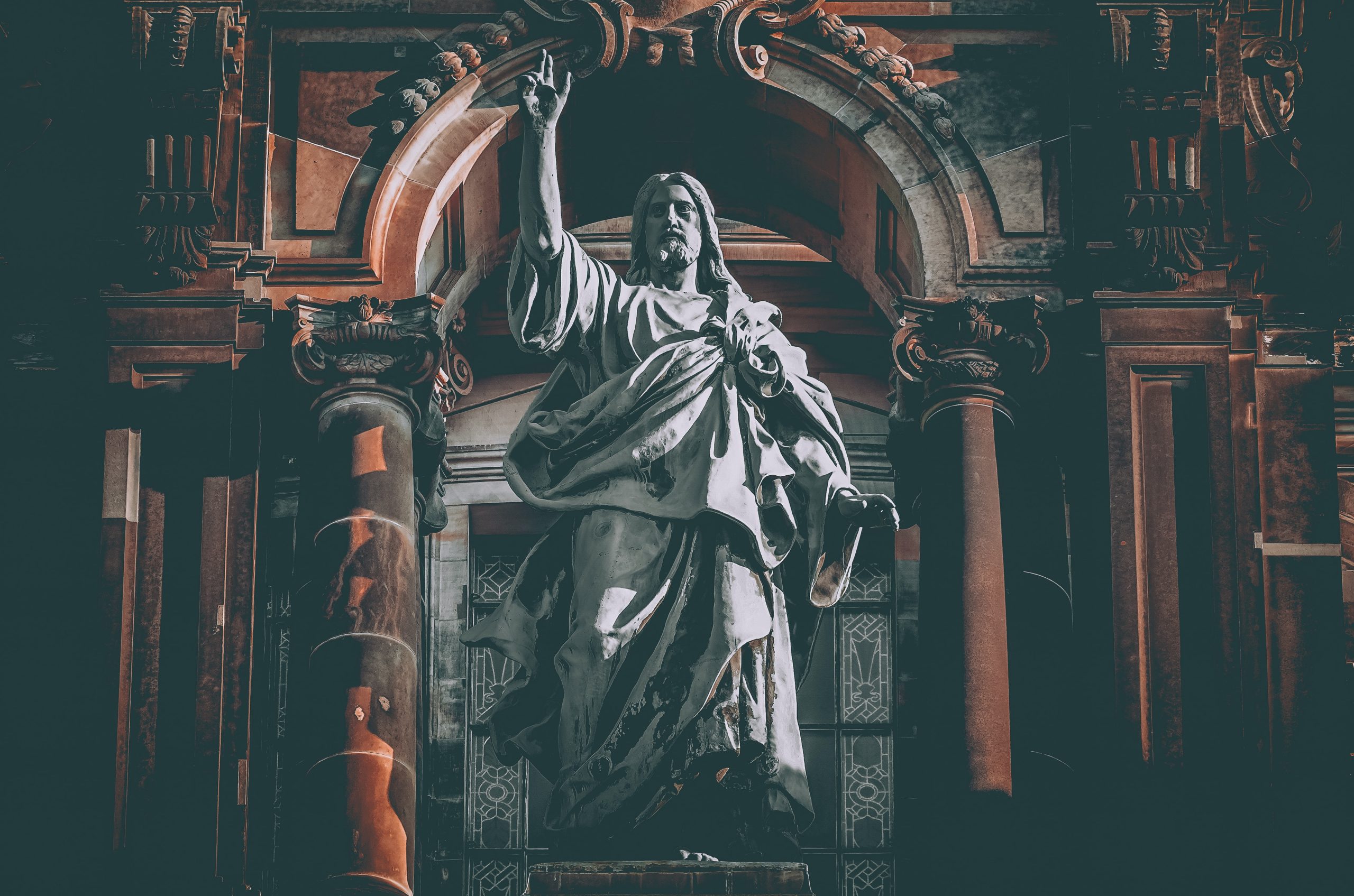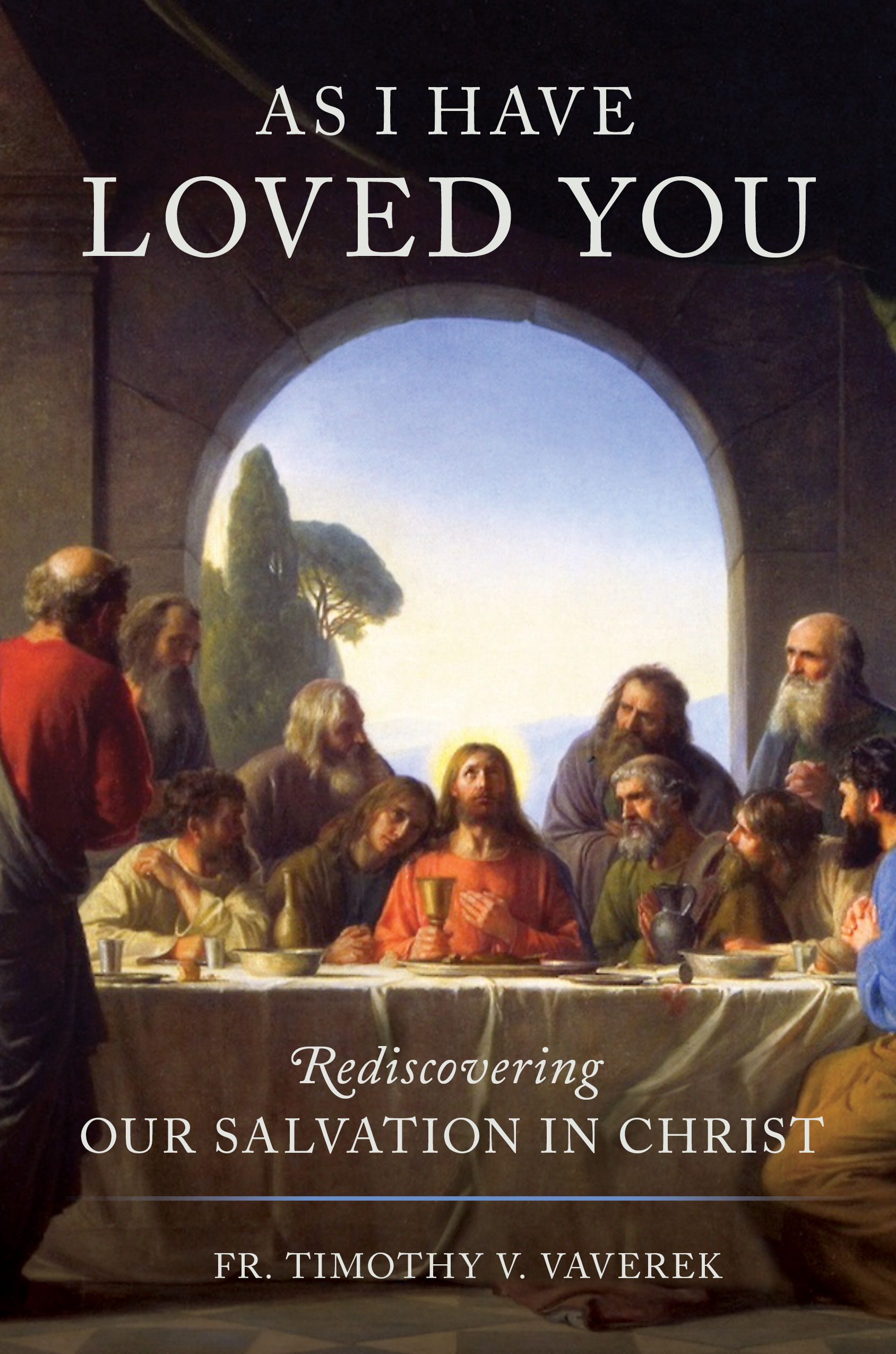
If asked to describe Jesus’ saving work, many Christians would probably say something like: “He died to save us from our sins,” perhaps adding, “He taught us to love God and neighbor.” Although true as far as it goes, this sort of reply ignores the entirely unique mystery at the heart of the salvation Christ came to offer us. After all, the forgiveness of sins and the two great commandments had been proclaimed through Moses and the prophets centuries before his birth. What had not yet been revealed was the actual fulfillment of God’s loving promise to put his Spirit within his people, giving them new hearts and making them faithful to him (see Ezek 36:26–27). This long-awaited gift would create a new relationship, a New and Eternal Covenant, by which God would wed his wayward people to himself and write his law on their hearts (see Jer 31:31–34; Isa 62:4–5). The Gentiles were also promised to share in his saving work (see Gen 22:18; Isa 2:2–3, 49:6). God accomplished this nuptial reconciliation in and through Jesus, offering an intimate personal union that infinitely exceeds the forgiveness of sin already available through the sacrifices and other rites of the Old Testament. In the New Covenant, God comes to dwell within his people, Jew and Gentile alike, thereby allowing them to participate in his divine life and saving work. That is the heart of the salvation Christ brought, a new way of life expressed in the New Commandment to love as he loves and established through his once-for-all sacrifice of the Cross that continues to be celebrated in the covenantal rite he inaugurated at the Last Supper (see John 15:12; Heb 10:10; Luke 22:19-20; 1 Cor 11:26).
The Eternal Covenant thus affirms and yet utterly transcends the righteousness available through the law and the prophets. This is the meaning of Jesus’ beatitudes and his teaching that the life of the kingdom fulfills the law, surpasses the righteousness of John the Baptist, and reaches the perfection of our Heavenly Father (see Matt 5, esp. v. 28; Matt 11:11). No longer is it sufficient to love God with all our heart, mind, soul, and strength and to love our neighbor as ourselves, thereby imitating God’s righteousness based on our human capacities. Through nuptial union with God in Christ, we are enabled to love as Jesus loves because we participate in the eternal, divine love with which the Father loves him and he loves us (see John 1:16–17, 15:9–12). This union and participation in God’s life and love arises from the fact that he now dwells in us and we in him (see John 15:17, 23). St. Peter and St. Paul described this new life in startling terms: “[We have] come to share in the divine nature”; “[We] become the righteousness of God in him”; and “I live, no longer I, but Christ lives in me.” (2 Pet 1:4; 2 Cor 5:21; Gal 2:20). The early Church Fathers made equally bold affirmations, typified inSt. Athanasius’ famous saying: “For he was made man that we might be made God” (i.e., God the Son takes on human nature through the Incarnation so we can participate in his divine nature through nuptial union with him). This transforming participation in God’s life is called divinization (or deification) in the Catholic Church and theosis in Orthodox Churches. Regrettably, many contemporary Catholics are unfamiliar with that technical term and, worse, the reality it signifies. Among most other Christian groups such participation is historically unknown or denied.
Although we become one with God and share in his divine nature, we do not become a divine being or lose our distinct identity any more than a husband and wife become a single being or lose their identities when they marry. Our participation in God’s life and work takes place through a personal relationship which unites us to him, not by our literally taking on his nature. Nuptial language is best suited for understanding this relationship because God has patterned the “two-become-one” of marriage after the union of Christ and the Church:
“For this reason a man shall leave [his] father
and [his] mother
and be joined to his wife,
and the two shall become one flesh.”
This is a great mystery, but I speak in reference
to Christ and the church (Eph 5:31–32, NAB,
citing Gen 2:24).
That is why God chose to use images of betrothal and marriage throughout the Old and New Testaments to describe his covenant relation with his people (see Isa 54, 62:1–5; Jer 2:2–5, 3:1–5; Hos 1–3; Matt 9:15, 22:1–10, 25:1–13; Rev 19:6–9). This nuptial union is the mystery hidden in ages past but revealed in the fullness of time: Christ in us, the hope of glory (see Col 1:26–27).
The foundation of the nuptial relationship is the Incarnation, through which God bestowed on the humanity of Jesus the fullness of participation in the divine life. Made head of the human race by sharing our nature and by his personal union with us in divine love, Christ embraced each of our lives as his own so that our lives could become a participation in his. Thus, he joined us to himself in the midst of the many evils we endure: our sins and their effects, the harm done by others and the defects of a fallen world, the sufferings of others that we carry through compassion, and the enmity we face for his sake. Jesus’ agonizing, sacrificial acceptance of these evils enables what was previously impossible: that we embrace a right relation to evil through a union with him which removes the alienation it caused, thereby bringing us personal healing and reconciliation with God and others. So, too, he made the joys of our life his own and endowed them with eternal value, transforming the good we do and the good that is done for us into encounters with him. In this way, through his life, death, and Resurrection Christ carried us in his heart and was able to present us with himself in sacrifice to the Father as a pleasing offering. Glorified in heaven, he sent the Holy Spirit so that he might dwell in us and we in him, making us one body, one spirit in him. This is the eternal life of the New Covenant.
FR. TIMOTHY V. VAVEREK is a priest of the Diocese of Austin serving as pastor for Assumption Parish in the city of West. His hometown is San Marcos, where he graduated with a degree in physics from Texas State University. During seminary, he studied at the University of Dallas and the Gregorian University (Rome). He received a doctorate from the Angelicum University (Rome) in 1996. His studies focused on Ecclesiology, Apostolic Ministry, Newman, and Ecumenism. Since ordination in 1985, his ministry has been in parishes except for three years as a diocesan official. He has published in various journals and writes for TheCatholicThing.org.
You Might Also Like
Over many centuries, Christians have lost sight of the heart of the Eternal Covenant: our nuptial union with God in Jesus as members of his Body and Bride. This has fueled a growing crisis of Christian identity and witness. Only by rediscovering the depth and beauty of our salvation in Christ will we be drawn to share more fully in his life and saving mission. But that requires encountering anew the scriptural and early Christian understanding of redemption as a nuptial bond rather than merely a juridical pardon of sin. Beginning with the Trinity’s revelation of himself and his Covenant in the person of Jesus, As I Have Loved You examines our own existence as persons and how the Covenant relationship weds us to Christ in his loving service of God and neighbor. That union prepares us for the Wedding Feast of the Lamb, when we will know and love God even as he knows and loves us.
